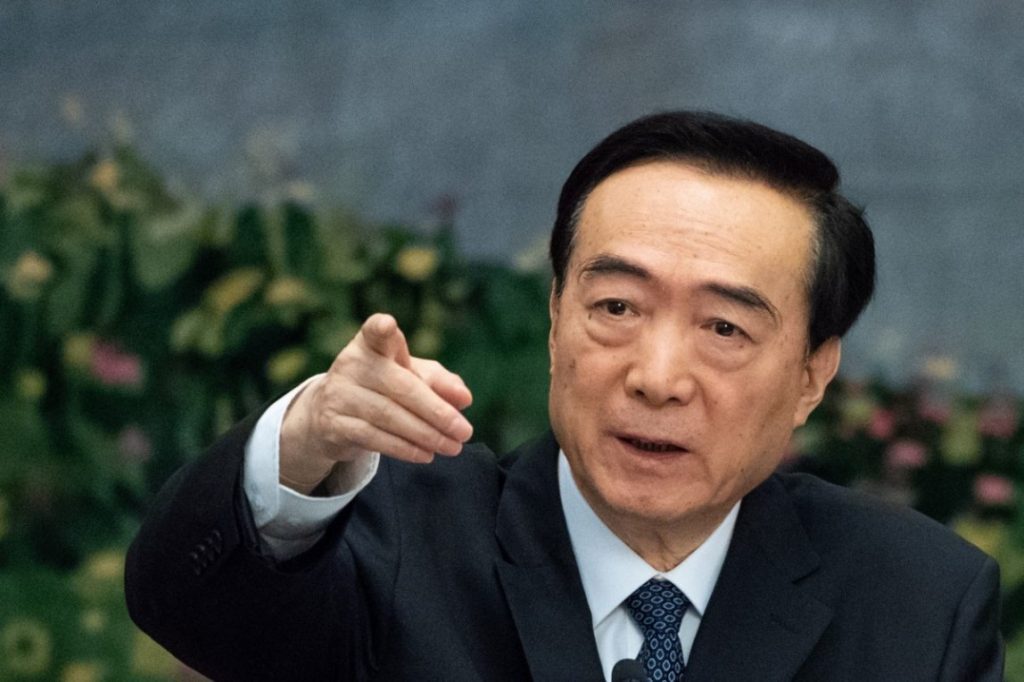New Reports Highlight Dramatic Plunge in Human Rights Under the Ccp
Free Tibet’s findings feature heavily in Conservative Party report, which calls on the UK to re-think relationship with the Chinese government
Two new reports released this week have highlighted the dangerous and dramatic plunge in human rights standards under Chinese Communist Party rule.
The reports, by the Conservative Party Human Rights Commission (CPHRC) and Human Rights Watch, cover a wide range of human rights violations and worrying trends, from the National Security Law and crackdown in Hong Kong to the mass incarceration and forced labour that Uyghurs are subjected to, to the attempts by the CCP to repress reporting around the outbreak of the novel coronavirus. Both reports also outline a range of abuses in Tibet.
The CPHRC report, The Darkness Deepens (PDF), draws heavily on research from Free Tibet and its research partner Tibet Watch. It is a follow up to the CPHRC’s 2016, The Darkest Moment (PDF), which Free Tibet and Tibet Watch also contributed to. Noting that the UK government’s previous approach to China has not worked, the latest report concludes that the “time has come for the United Kingdom to stand up for our values, defend our interests and re-think our relationship with the CCP.”
Among the recommendations in the report are “a co-ordinated, comprehensive review of UK-China policy, across all relevant government departments” and the application of “targeted sanctions against officials and entities in the Chinese and Hong Kong governments responsible for serious violations of human rights”. Free Tibet has been leading the calls for the Foreign Office to use its new Global Sanctions Regime to target Chen Quanguo, former Party Secretary of the Tibet Autonomous Region and who is now the senior official in the Uyghur region, where he has overseen widespread repression.
The CPHRC report was launched on Wednesday with an online event, featuring the report’s author, Benedict Rogers, and speakers including Hong Kong MP Nathan Law, Uyghur rights advocate Rahima Mahmut, Chinese lawyer Teng Biao and Hongkonger and former British consulate worker Simon Cheng, who described his detention and torture at the hands of China in 2019.
The report launched came at the same time as the British government hardening its stance towards China, encouraged by several senior Conservatives. The CPHRC report has been endorsed by two former Conservative Secretaries of State, Lord Hague and Sir Malcolm Rifkind. The day prior to the launch, the Secretary of State Dominic Raab announced that UK firms doing business in China would be subject to fines if they could not show that their products have not been made with forced labour from the Uyghur region.
During the report launch, Rahima Mahmut noted this progress but said it was” still very little compared to what is happening”, and urged the UK government to support an amendment to block trade deals with countries that have been found guilty of genocide. The government has resisted this proposal, which is backed by several MPs and members of the House of Lords.

Chen Quanguo, responsible for atrocities in Tibet and the Uyghur region
The same day, 13 January, Human Rights Watch launched its annual report on human rights around the world. In its entry on China and Tibet, the organisation detailed restrictions on religious freedom, freedom of speech, movement and assembly, as well as measures to increase Chinese control over Tibet, such surveillance, indoctrination and economic migration of Han Chinese workers to Tibet.
The report noted that we are seeing “the darkest period for human rights in China since the 1989 massacre that ended the Tiananmen Square democracy movement”, and that the “Chinese government’s authoritarianism was on full display in 2020”. It nevertheless sounded an optimistic note, stating that 2020 was also the year that governments around the world found “safety in numbers” to push back against China’s human rights abuses

